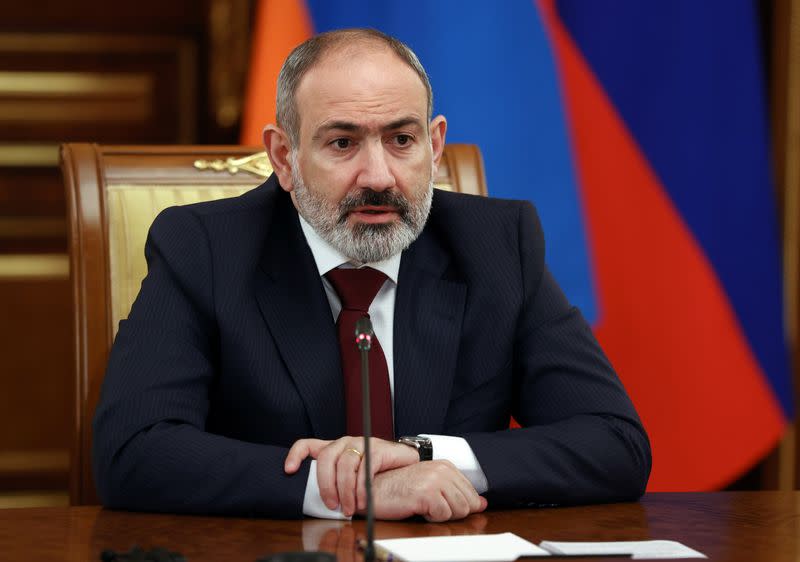Russia protests to Armenia as tensions rise over disputed Caucasus region
(Reuters) - Russia summoned the Armenian ambassador on Friday to present a protest about what it deemed "unfriendly steps" as tension in the South Caucasus surged over the disputed region of Nagorno-Karabakh.
Within hours, Armenia's foreign ministry issued a statement expressing willingness to resolve disputes with Azerbaijan over the territory, focal point of two wars in the past 30 years.
It made no reference to the Russian complaints.
Azerbaijan's foreign ministry, in a series of statements, said it was Armenia which was posing a threat to regional stability by abetting separatism in Nagorno-Karabakh.
"Armenia pursues one goal: to sustain separatism in the territory of Azerbaijan through all possible ideological, political, military, financial and other means," the Azeri Foreign Ministry said.
Armenia and Azerbaijan accused each other on Thursday of moving troops close to their joint border.
Russia on Friday made a "harsh representation" to Armenia's ambassador for signing up to the International Criminal Court, which has issued an arrest warrant for Kremlin leader Vladimir Putin.
It was also displeased with Armenia agreeing to host a military exercise with the United States and for a humanitarian visit to Ukraine by the Armenian prime minister's wife.
Armenia hosts a Russian military base and relies almost entirely on Russia for defence supplies.
Prime Minister Nikol Pashinyan said in an interview published this week that Armenia's policy of relying solely on Russia to guarantee its security was a strategic mistake.
He said Moscow, distracted by its war with Ukraine, had been unable to deliver and was winding down its role in the South Caucasus.
Karabakh, long recognised as part of Azerbaijan, is populated mainly by ethnic Armenians.
Armenian forces captured territory around Karabakh as the Soviet Union collapsed in the 1990s, but Azerbaijan retook the areas in a six-week 2020 conflict ended by a Russian-brokered truce. Talks have so far failed to clinch a long-term peace.
Armenia complains that Russian peacekeepers overseeing the 2020 truce have failed to end an Azerbaijani blockade of Nagorno-Karabakh. It has also openly questioned whether to remain in the Collective Security Treaty Organization (CSTO), a Russia-led military alliance of six former Soviet republics.
Moscow insists that it intends to remain the principal guarantor of security in the Caucasus.
A foreign policy adviser to Azerbaijani President Ilham Aliyev told Reuters his country was ready to allow Red Cross aid from Armenia into Nagorno-Karabakh if Red Crescent aid from Azerbaijan was let in at the same time.
(Reporting by Reuters; writing by Kevin Liffey; editing by William Maclean, Mark Heinrich, Ron Popeski and Richard Chang)



